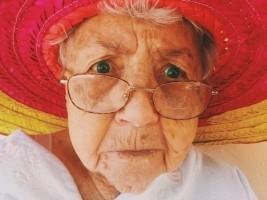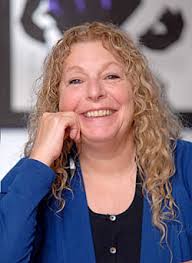
In most families one sibling handles a disproportionate share of the caregiving duties, often with resentment. What adult children feel towards the aging parent(s) can bring longstanding grievances to the surface. Sibling conflict can even break up families.
“I have two siblings and they are leaving nearly all of the burdens of caring for mom to me,” Jules said bitterly to herself in Diana Paul’s novel, Things Unsaid.
In her book, two non-participating siblings stand on the sidelines. They pass judgement on Jules’ every decision. Her siblings’ potshots generate discord over medical and caregiving choices. When they refuse to contribute financially, conflict increases. Eventually, they even bicker over the inheritance.
Sadly, without sisters and brothers there is no one else to lend a hand.
Is the Caregiver’s Journey Easier With No Sibs?
Single adult children experience caregiving by themselves. Alone, they watch the deterioration and eventual death of their parents. And, unlike individuals with siblings, only children have no choice but to care for their parents.
“I am an only child,” Laura Katz Olson wrote in her memoir, Elder Care Journey: A View from the Front Line. What struck her hard was the fact that she, alone, was in charge of everything regarding her mother.
How Many Caregivers Are There?
Today over 34 million Americans, mostly adult children, provide caregiving services for older people. Adult children account for over 80 percent of such labor. Millions of children are helping parents with dementia, and that need for constant oversight takes an enormous toll. What is more, family caregivers must deal with the role reversal of “parenting” their aging parents, something both generally resent.

While most parents tell their adult children they don’t want to become a burden in old age, people are living far longer. Over 50 percent of adults live beyond the age of 85. These “senior” seniors are the fastest growing sector of the U.S. population. Most require some form of help.
Aging baby boomers, who are beginning to cope with their own health issues, may now find themselves balancing the needs of elderly parents, children, spouses, relationships, and work. Those in the so-called “sandwich generation” are confronting challenges to their emotional, psychological, physical, spiritual and economic well-being.
Changing Demographics
According to Laura Katz Olson, Professor of Sociology at Lehigh University, in the next decade, tens of millions of people will join the millions of today’s caregivers. And, increasingly, more of them will not have siblings. Roughly 20 percent of families consist of only children. Their mothers generally gave birth at older-than-average ages, portending a greater challenge for their offspring than for preceding generations.
Does having siblings actually ease the burdens of elder care? Many parents may once have considered having a second child to help their “onlies” take care of them in old age. Yet, there are few studies that actually compare the quality of caregiving among siblings with that of an “only”.
Certainly, many singletons yearn for siblings to chip in and may fantasize about the support they would receive. Nevertheless, only a small percentage of sisters and brothers actually provide substantial aid to the primary caregiver, who is usually a daughter. Olson recounts this journey in her memoir, Elder Care Journey: A View from the Front Line.
With siblings or without, the job has become too overwhelming for one person to handle alone. All caregivers need compassion, appreciation, and assistance in addition to reassurance that self-care is not selfish. At the same time, the family unit needs to be re-defined by including a community of friends, neighbors, and others to step in as well as to advocate on the caregiver’s behalf. Society is just at the tipping point of this zeitgeist, the bellwether of our times, for meeting the needs of frail seniors and their beleaguered caregivers. None of us should be alone!
The Authors
Diana Y. Paul is the author of Things Unsaid: A Novel (She Writes Press, 2015) and Laura Katz Olson of Elder Care Journey: A View from the Front Line (SUNY Press, 2016). Both books portray a mother-daughter relationship and their caregiving experience. Paul explores the role of siblings while Olson examines her single-child family. The two authors seek to share caregiver issues with others so that we can better cope with the precarious situation we face and know that we are not alone.